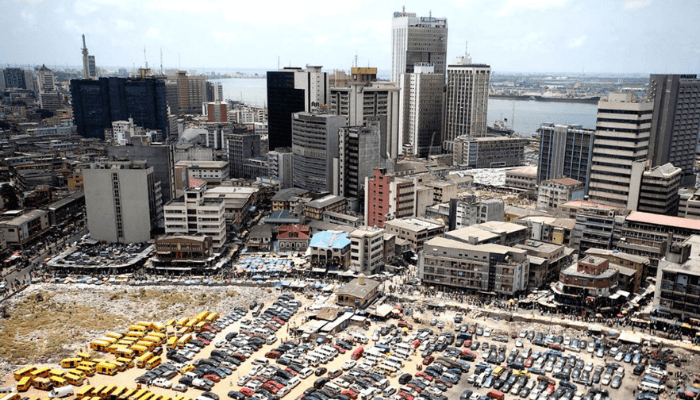By Deborah Yemi-Oladayo
Copyright businessday

Nigeria is signing trade deals across continents, but are we ready to cash in yet? In recent months, our government has entered into agreements with partners across South America, Europe, and the Middle East. These accords are hailed as game-changers, promising new markets for Nigerian products, foreign investments, and opportunities for export diversification. The photographs of handshakes and ceremonial pens paint a picture of progress.
Yet beneath the optimism lies a more pressing question: who will truly drive Nigeria’s economic future under these agreements? The answer is not in documents signed abroad, but in the people who must do the work at home. Human capital is the real driver of prosperity in a world defined by trade and competitiveness.
Nigeria’s growing portfolio of bilateral trade agreements is a commendable step toward reshaping our economy. For too long, we have depended heavily on oil while leaving other sectors underdeveloped. These new deals mark a bold shift, an effort to diversify exports, open doors for local industries, and integrate Nigeria more deeply into global value chains. By building bridges with Europe, Asia, and African neighbours, the government signals that Nigeria is ready to compete, not just consume.
The potential is vast. Trade agreements create platforms for knowledge transfer, attract investment into priority sectors, and expand opportunities for Nigerian entrepreneurs and workers to thrive internationally. With the right focus on developing our people, bilateral trade can become one of the most transformative engines of growth in our history.
But agreements do not guarantee outcomes. A treaty with Brazil means little if our airlines cannot meet global service standards, if energy costs remain high, or if many of our developers cannot scale their solutions beyond Lagos. Nations that have thrived under such deals did so because their people were ready. Vietnam’s rise in manufacturing was fuelled by investment in vocational training. Morocco’s solar boom was possible because engineers were trained for renewable energy projects. People, not signatures, made prosperity possible. Nigeria cannot trade effectively abroad if it does not build capacity at home.
Agreements are not just about removing tariffs; they are about standards, compliance, and the skills required to meet them. A cocoa factory in Ondo can only export chocolate bars to Europe if its staff understand EU health and safety rules. A fashion brand in Aba can only thrive abroad if its tailors master international finishing. A renewable energy project funded by a foreign partner will only create value if Nigerian engineers are trained to maintain the equipment. Without human capital, trade deals collapse into one-way streets: imports grow, exports shrink, and prosperity slips away.
The real drivers of Nigeria’s economic future are its youth. They are the coders building fintech platforms, the agripreneurs rethinking food production, the creatives designing for export, and the engineers eager to join renewable energy value chains. But they cannot do this alone. They require deliberate state investment in skills, structured partnerships with the private sector, and access to platforms that connect them to global markets.
It is not enough to celebrate the Afrobeats stars, tech unicorns, or Olympic medallists who succeed despite the odds. We must create pathways that multiply such successes by design, not by accident. To transform bilateral promises into prosperity, Nigeria needs a coordinated human capital agenda.
That agenda should identify specific skills required to maximise trade deals, such as agro-processing, renewable energy engineering, textile design, and software development, and provide targeted training. Every state should establish centres for mentorship, training, and access to technology. Just as Morocco invested in solar institutes, Nigeria can build Trade Readiness Hubs where young people gain skills aligned with global markets.
We have the advantage of numbers. With more than 70% of the population under 30, Nigeria sits on a demographic goldmine, yet that potential remains untapped. The World Bank reports that over 40% of youth are unemployed or underemployed, many stuck in low-productivity sectors with limited global relevance. Our education system produces graduates mismatched to industry needs. We churn out thousands of degree holders in fields with little absorption capacity, while sectors like technology and agribusiness struggle for skilled workers. Unlike Germany, where vocational education is respected, or Kenya, which has invested heavily in TVET centres, Nigeria still treats technical skills as second-class. Yet trade depends on welders, coders, machinists, agronomists, and technicians.
If Nigeria fails to act, agreements risk becoming highways for imports while local industries falter. Youth unemployment will worsen, fuelling insecurity and brain drain. Already, farmers struggle to meet export standards while Ghana enjoys stronger access to European markets. Nigerian tech talent often migrates abroad, powering innovation elsewhere. Without reform, bilateral agreements may accelerate this outflow of talent and opportunity.
About the writer:
Deborah Yemi-Oladayo is the Managing Director of Proten International, a leading HR Consulting firm in Nigeria, specialising in Recruitment, Learning and Development, and HR Advisory Services. Email: [email protected]



